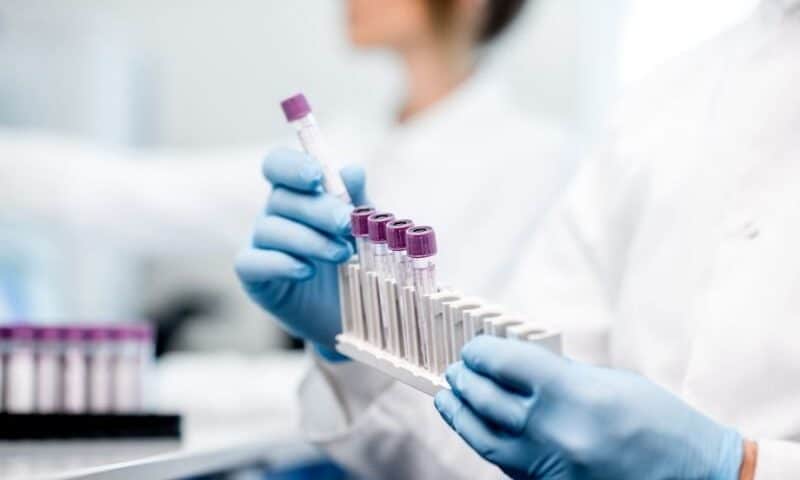The rapid, saliva-based coronavirus test used to screen NBA players within “the bubble” as they work through their current basketball season has now been authorized by the FDA for use across the country.
Developed by Yale University’s school of public health, the SalivaDirect COVID-19 test uses new methods to process samples and detect infections that could help it avoid the supply chain constraints faced by other diagnostics and reach greater numbers of people.
The test does not require a specific swab or collection device, and can work with saliva samples taken from any type of sterile container, according to the FDA. The test also does not need additional chemicals for extracting the virus’ RNA from the sample, which have been in high demand for months.
“Providing this type of flexibility for processing saliva samples to test for COVID-19 infection is groundbreaking in terms of efficiency and avoiding shortages of crucial test components like reagents,” FDA Commissioner Stephen Hahn said in an agency statement.
In addition, the FDA authorized SalivaDirect test for use with different combinations of common reagents and scientific instruments, allowing it to be run in a large number of certified laboratories—with Yale planning to make the test’s instructions available as an “open source” protocol, so that various staff can assemble the needed components and scale up on their own, as needed.
“Widespread testing is critical for our control efforts,” said Nathan Grubaugh, an assistant professor at the Yale School of Public health. “We simplified the test so that it only costs a couple of dollars for reagents, and we expect that labs will only charge about $10 per sample.”
“If cheap alternatives like SalivaDirect can be implemented across the country, we may finally get a handle on this pandemic, even before a vaccine,” Grubaugh said.
As part of their validation efforts—dubbed SWISH, for Surveillance with Improved Screening and Health—Yale researchers found that the novel coronavirus can remain stable in saliva at warm temperatures, allowing the test to forgo specialized collection tubes and chemical preservatives. At the same time, the SalivaDirect protocol could help double the COVID-19 testing capacity of Yale’s pathology lab in the coming days, according to department chair Chen Liu, who helped oversee the test’s clinical validation.
“This is a huge step forward to make testing more accessible,” said Chantal Vogels, a Yale postdoctoral fellow who helped lead its laboratory development. “This started off as an idea in our lab soon after we found saliva to be a promising sample type of the detection of SARS-CoV-2, and now it has the potential to be used on a large scale to help protect public health.”

